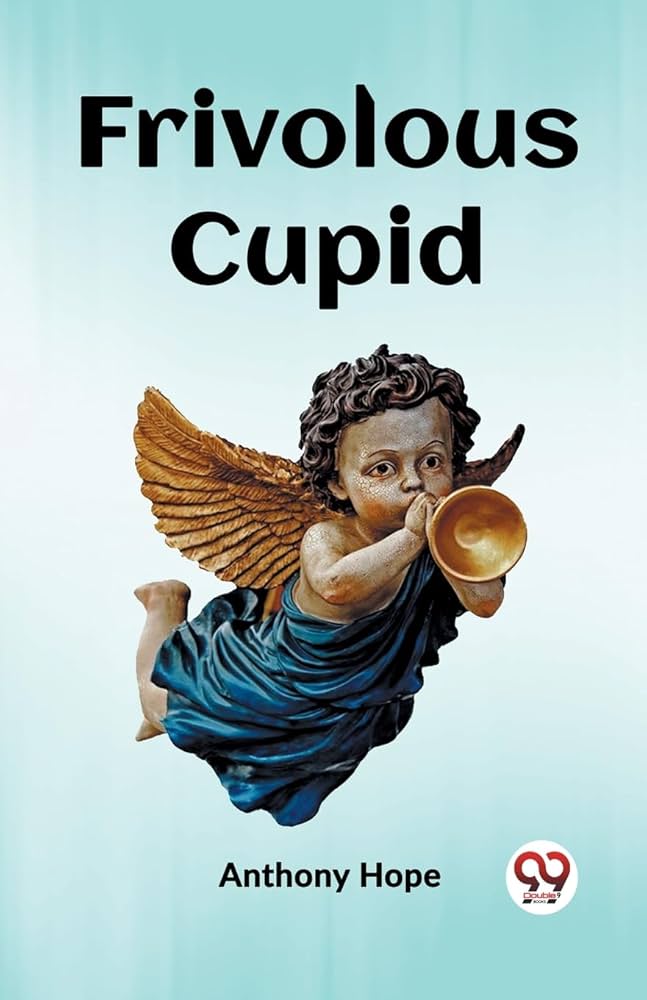Chapter IX — Frivolous Cupid
byChapter IX begins in the stillness of early evening, where golden light casts soft shadows across the quiet meadows, and Hilda finds herself haunted by a memory that refuses to settle. A kiss, brief and impulsive, shared with young Harry Sterling, has planted itself deeply in her conscience, unsettling her peace. She had not intended to invite affection, and certainly not from someone whose youth and idealism stood in sharp contrast to her mature restraint and married status. Her feelings have become entangled—part guilt, part dismay, part wistful regret. The meadow remains unchanged, but within her, something has shifted. The memory clings to her as she returns home, where Mr. Mortimer’s warm detachment provides no clue to the moment that has rattled her core. She listens to the rhythm of her household—the familiar ticking of the clock, the clatter of dishes—desperate to root herself back into normalcy.
The following morning arrives with clarity in the air, but none within Hilda. Shame, uninvited yet unavoidable, presses into her like the tight bodice of her dress, each breath a reminder of boundaries crossed. Though Harry may view the incident with boyish enthusiasm or romantic flair, for her, it is a tremor in the foundation of her character. At the local Vicarage gathering, Hilda moves with controlled elegance, her smiles measured and her voice steady, yet inside she scans each corner for Harry, dreading and longing for his gaze. She wants to forget but fears being forgotten. The party’s cheerfulness only accentuates her inner disquiet, a jarring contrast that turns every laugh into static in her mind. When Harry does appear—unburdened, eager, and earnest—Hilda sees not a lover but a child wielding something too powerful to understand. His persistence, while innocent to him, feels dangerous to her, like a match struck too close to dry grass.
Mrs. Sterling’s conversation later that evening deepens the conflict. Speaking as only a mother could, she praises Hilda’s grace and subtly hints at the influence she may have on her son, who she fears is too easily impressed by pretty things and gentle words. Hilda nods politely, heart sinking with every compliment. Each phrase feels like an unknowing indictment, reminding her of the power imbalance, of how easily Harry could be shaped or misled by admiration. And although Mrs. Sterling speaks without suspicion, Hilda hears an echo of judgment in every word. Her role, once simply social and supportive, now feels fraught with responsibility she did not ask for. She is not merely an older woman admired by a younger man; she is a potential threat to his innocence and her own name. The weight of this realization bears down with the full force of decorum and expectation.
Hilda tries to retreat into the safety of routine. She avoids long glances and carefully reroutes her conversations when Harry is near. But even the most composed routine can fracture under pressure, and that moment comes quietly, on a day that seemed ordinary until it was not. Harry appears at her doorstep, uninvited yet somehow expected, carrying with him the bright, unsettling presence of youthful hope. He is met not only by Hilda, but by Maudie Sinclair, a family friend whose easy manner belies a sharp instinct. The encounter becomes a high-wire act, with every word and gesture walking the thin line between casual interaction and revelation. Hilda speaks too little, afraid of saying too much. Harry, oblivious to the undertow, lingers with the earnestness of someone unaware that the water is rising.
The chapter closes not with scandal or confrontation, but with silence—a silence thick with what has not been said. Hilda stands beside her husband at dinner, answering questions and serving tea, her mind somewhere between guilt and grief. She knows that nothing outward has changed, but everything inward has. The world still sees a refined hostess, a devoted wife. But inside, she measures every movement against the fear of discovery and the ache of wanting what she cannot allow. The story leaves her poised at a precipice, where emotion and ethics struggle for balance, where one wrong step could undo a carefully lived life.

